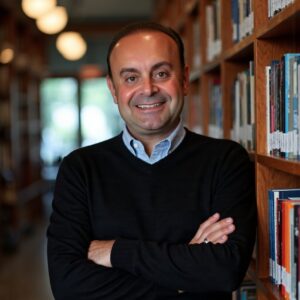Beyond the Diagnosis: Dr. Zarkadas’ Mind-Body Model of Care
Beyond the Diagnosis: Dr. Zarkadas’ Mind-Body Model of Care
Blog Article

In an era wherever healthcare usually thinks fragmented and rushed, Dr. Zarkadas is advocating for anything deeper, more individual: integrative medication that reconnects your head and human anatomy in the procedure process. With a background seated in equally psychology and central medicine, and a Master of Healthcare Administration (MHA) to fit, Dr Konstantinos Zarkadas NYC has changed into a primary style in the movement toward whole-person care.
For him, the mind and human anatomy aren't split up systems—they are lovers in health. “You can't truly treat the human body without understanding your brain behind it,” he explains. That philosophy is at the core of integrative medicine, an approach that blends main-stream solutions with psychological, psychological, and actually lifestyle concerns to support therapeutic from every angle.
Dr. Zarkadas'training in psychology offered him early understanding into how emotional health, tension, stress, and attitude influence bodily health. That understanding remains to form how he engages with individuals today. Whether managing chronic infection, moving complex diagnoses, or approaching suffering, he considers price in looking beyond indicators to comprehend the entire human experience behind them.
Rather than relying exclusively on prescriptions and procedures, Dr. Zarkadas incorporates open talk, strain management, behavioral information, and also natural and lifestyle facets in to his patient treatment strategy. This produces a beneficial setting wherever patients experience observed, noticed, and empowered.
What makes his strategy stand out is its mixture of consideration and clinical precision. His medical understanding offers structure and consistency; his psychological perspective gives degree and context. Together, they sort a bridge—one that many feel modern medicine has long needed.
In his administrative position, Dr. Zarkadas can also be helping form programs that help this kind of integrative model. He advocates for attention teams offering mental health professionals, encourages doctor teaching that emphasizes conversation and concern, and supports reforms that enable more time with patients—perhaps not less.
The outcomes talk for themselves: increased patient satisfaction, greater therapy adherence, and outcomes that rise above only numbers on a chart.
While the healthcare field adjustments toward more customized and preventive types, Dr. Zarkadas stands at the forefront—featuring that healing the whole person isn't only probable, it's necessary.
In Dr Konstantinos Zarkadas'world, medication is not nearly recovering illness—it's about building links between brain and body, between patient and company, and fundamentally, between science and humanity. Report this page